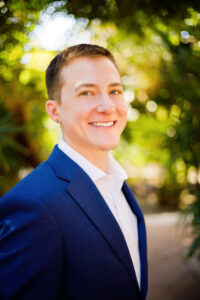Looking for my CV? I gotcha covered. Looking for my story? Check it out:
I hold a PhD in Geography from University of Colorado Boulder, one of the highest ranked geography departments in the world. Trained in political geography under the guidance of John O’Loughlin, I have expertise in nationalism, territory, and ethnic conflict in contemporary China. I focus on China’s relationship with its Turkic Muslim minority borderlands, specifically the homeland of the Uyghurs. The Uyghurs are a Turkic-Muslim indigenous people group living in northwest China. You could say I’m an expert in Chinese ethnic minority policy.

My research was supported by multiple grants and tuition assistance, including two grants from the National Science Foundation: The Graduate Research Fellowship Program and the Doctoral Dissertation Research Improvement grants. I’m a Fulbright scholar. I speak Chinese and Uyghur.
After living in China for more than five years and learning two foreign languages, I have had a taste of what it feels like to find oneself outside the dominant culture. Navigating social etiquette, language barriers, and cultural norms outside of my comfort zone and experiencing life as a minority was fundamental in informing my understanding of Eurocentric representations and assumptions.
I also coached and competed in Brazilian Jiu-Jitsu clubs around the world as one way to empower people, especially women and girls, and connect and give back to local communities.
In 2019, I defended my PhD work specializing in territorial conflict, governance and development in China.
Trained in political geography, I have expertise in state-building and geopolitics, especially in regards to the invisible violence in China’s governance of its minority borderlands. I honestly couldn’t think of anything more interesting than this topic. It’s my favorite and I can still talk for hours about it if you ask me.
During the year 2021-2023, I was a postdoctoral research fellow at the Czech Academy of Sciences in Prague and George Washington University in DC. I was working on a book titled Fear, Hope and Survival in Xinjiang: Uyghur Life in China’s Military Police State. The book chronicles the Chinese government’s escalation of state terror and political control over the region and its citizens, describing the increase in surveillance, securitization, and militarization of everyday life.
My research includes ethical questions on fieldwork in dangerous and authoritarian systems. Fieldwork under state surveillance affected the data I was able to collect. In the end, such questions continue to shape my research today.
I’m passionate about expanding inclusivity to include queer people, especially when it comes to queer minorities in China, who live trapped between layers of trauma.
While I was in Prague, I came out as transgender and non-binary. How could I work towards liberating others until I had liberated myself and my body from the chains of patriarchy and binary gender norms? I started to research LGBTQ+ issues in Central Asia, a place even more dangerous for queer people than China. More than anything, the fact smacked me in the face, punched me in the stomach and wouldn’t let me breathe with the facts: until the world was safe for queer people, my queer participants will always be in danger and never be able to give full consent to publish my complete research findings.
I knew without a doubt that how we conceptualize consent affects our politics, bodies, and culture. Gaining back consent over our bodies is the first step towards gaining back consent over our lives. And gaining consent over our lives is the first step towards liberation and true freedom. Life is about choosing what comes next. I came out as trans and non-binary, and I haven’t looked back.
It’s not something that I can put into words easily. In the same way that I knew in my soul that I was not a woman, I also knew in my soul that I was not an academic.
Now, I currently go by the name Sam and work for a data analytics consulting firm helping philanthropists and advocates in climate change, Indigenous land rights, and Diversity, Equity, and Inclusion spaces. I also freelance as an editorial consultant. This was not always my name, and you may have known me at one point under the name Sarah. My pronouns are they/them.
